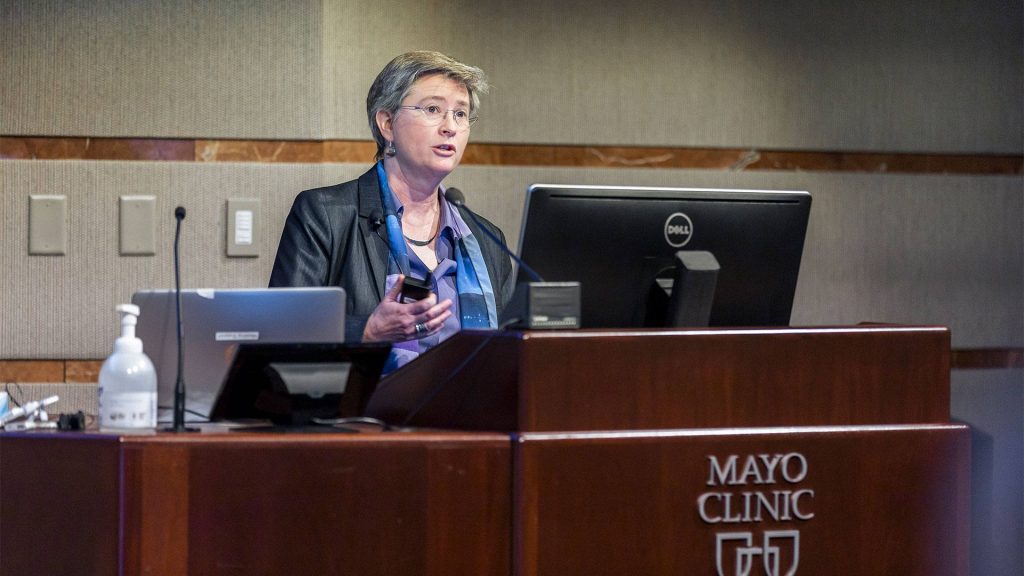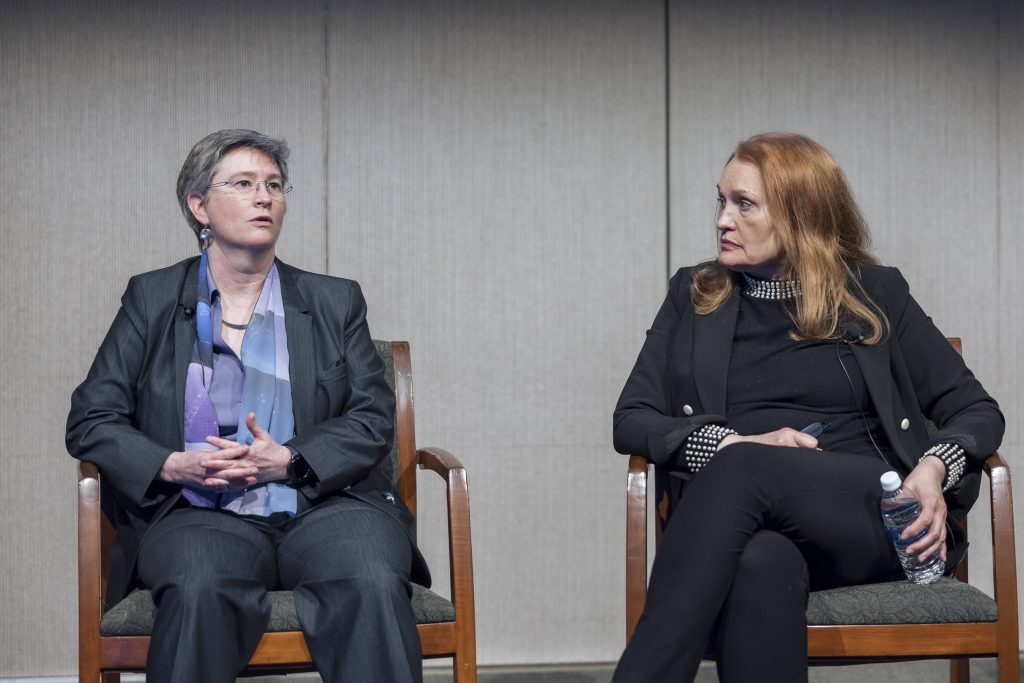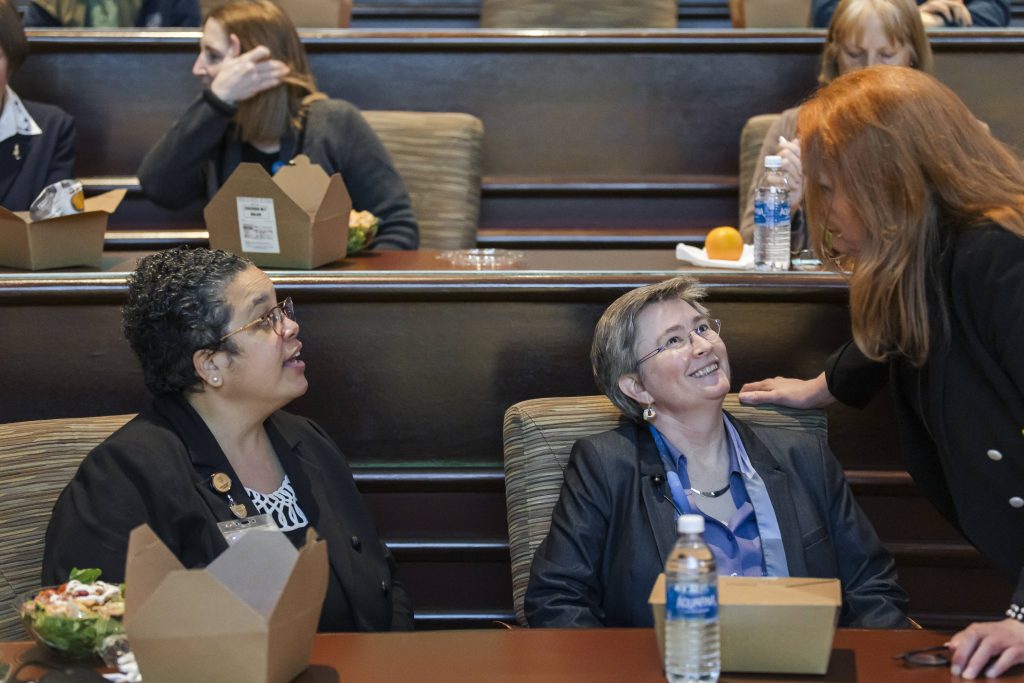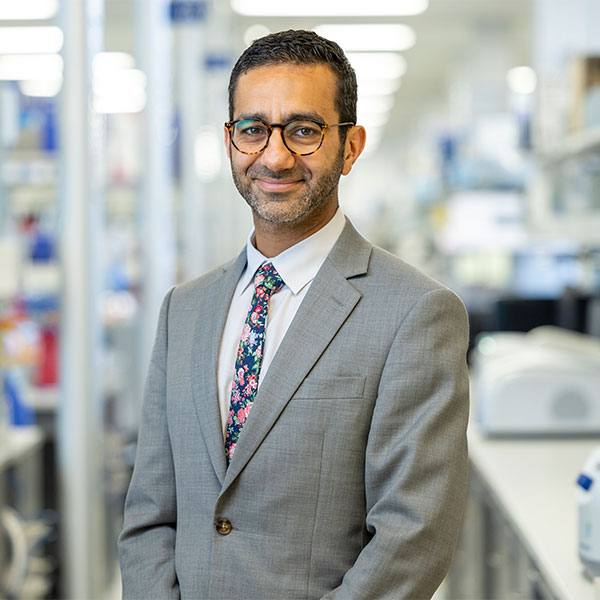-
Translational Science
Women in Science Lecture champions inclusion in research

Mayo Clinic's Celebration of Women in Science featured distinguished speaker Joni Rutter, Ph.D., director of the National Center for Advancing Translational Sciences (NCATS), National Institutes of Health (NIH). During the lecture, she shared her passion for including people with a broad spectrum of identities and backgrounds in all parts of research. In particular, she underscored the importance of fostering an inclusive ecosystem and supporting career pathways to create a culture where women in science can thrive. "Find your team" and "continuously expand your skill set" topped Dr. Rutter’s list of advice on how to advance both careers and research.
Vesna Garovic, M.D., Ph.D., director of Mayo Clinic's Center for Clinical and Translational Science (CCaTS) and a co-host of the event, says she felt inspired by how Dr. Rutter connected the inclusion of women in science to the principles of team science and translational science. Despite making up more than half the population, women historically have been underrepresented in medical research. Underrepresentation can lead to scientific bias and health disparities.
"She challenged all of us to promote inclusion to create systemic change so that scientists can accomplish research more effectively, predictably and rapidly to meet the unmet needs of patients," says Dr. Garovic.
Each person's career path is different.

Dr. Rutter stressed that dedication and a commitment to personal growth are the keys to carving out a path to success — and that each person's path will be different. She sketched the "winding spaghetti diagram" of her personal and professional journey, from her early life in Kansas to her interest in forensic science to her 20-year career trajectory at the NIH.
"Her talk resonated with me as a young woman early in my career," says Cortney Kokkeler, a clinical research coordinator in the audience. "It reassured me there is no straight line to career growth."
Re-engineering the research pipeline

Dr. Rutter says her dedication to advancing science to find cures was shaped by a family member's struggle with primary myelofibrosis, a rare disease that had no treatment at the time. Now, as director of NCATS, her vision for the agency is to "re-engineer the pipeline" in research, overcoming scientific and operational bottlenecks so new treatments can reach people more quickly.
There are thousands of known diseases, including many rare diseases, but only 5% of them have approved treatments. In the next 10 years, Dr. Rutter has three "audacious goals" for NCATS:
- More treatments: Develop cures for 25% of known diseases.
- For all people: Dramatically increase inclusivity across every part of research.
- More quickly: Enable diagnostics and therapeutics to reach people twice as fast.
To achieve this, Dr. Rutter says translational science approaches will be essential to finding commonalities across diseases, enhancing clinical trials, developing better predictive models and leveraging real-world data.
This effort will also require focusing on inclusion and interdisciplinary team science to blast through barriers to scientific progress.
Clinical and translational science at Mayo Clinic

The NCATS Clinical and Translational Science Award (CTSA) Program is the NIH's largest single investment in biomedical research. Mayo Clinic's CTSA award, renewed in 2022, supports CCaTS and is one of Mayo Clinic's largest NIH grants.
CCaTS is a central hub for the institutional advancement of research and education at Mayo Clinic. The center provides tools and expert consultation to support every aspect of medical research, including discovery and pre-clinical science, clinical and community-engaged research, and late-stage application and commercialization. Read Mayo's latest translational science news stories on the Mayo Clinic News Network.
Mayo Clinic is transforming healthcare by advancing science focused on the female body through all its life stages. Read these recent stories to learn more about Mayo's findings in diseases that are unique, more common or expressed differently in women.
- How preeclampsia accelerates aging in women
- Spotlight on early detection of 3 heart diseases using ECG-AI
- Mayo Clinic study puts price tag on cost of menopause symptoms for women in the workplace
- Accelerating microbiome research in endometrial cancer







